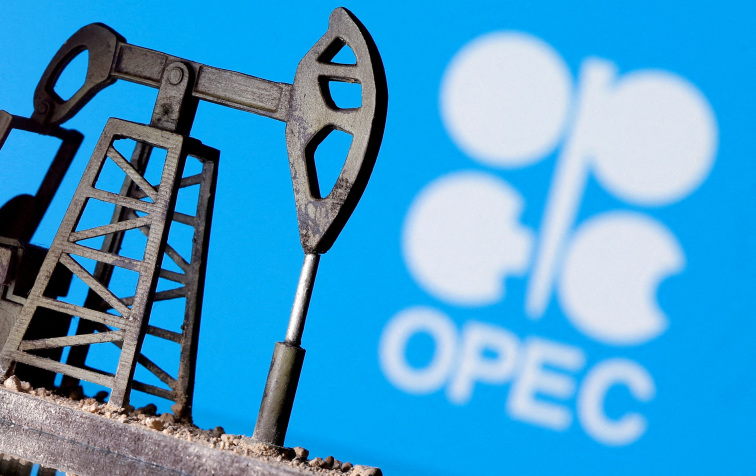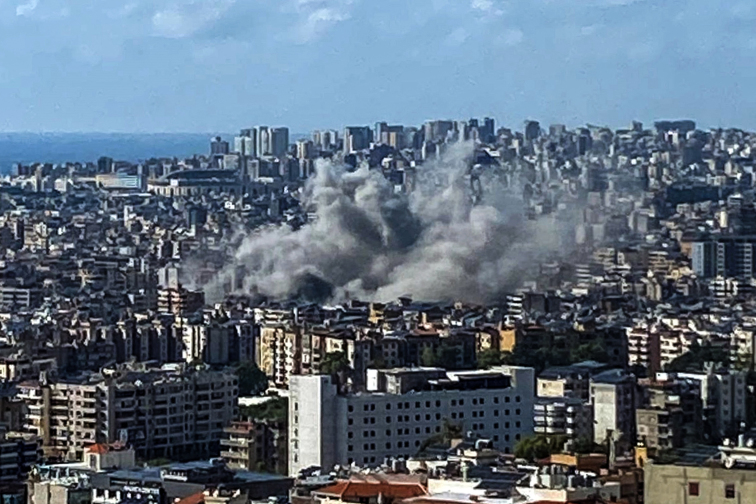Israeli forces carried out fresh airstrikes Wednesday in Beirut’s southern suburbs against what the military said were Hezbollah targets, while the militant group said it clashed with Israeli troops in several Lebanese towns near the border.
Israeli troops also carried out air and ground attacks Wednesday in the southern Gaza city of Khan Younis, killing at least 51 people and wounding 82 others, according to the Gaza health ministry.
The U.N. Security Council prepared to meet Wednesday to discuss the escalating conflict in the region, which included Iranian missile attacks on Israel a day earlier.
Israeli Foreign Minister Israel Katz faulted U.N. Secretary-General Antonio Guterres for his statement after the missile attack and announced Guterres was banned from entering Israel.
“Anyone who cannot unequivocally condemn Iran's heinous attack on Israel, as almost every country in the world has done, does not deserve to step foot on Israeli soil,” Katz said.
A statement Tuesday from Guterres called for a broader halt to heightening violence, without specifically mentioning the missile attack.
“I condemn the broadening of the Middle East conflict with escalation after escalation,” Guterres said. “This must stop. We absolutely need a cease-fire.”
The U.N. chief has repeatedly condemned the October 2023 Hamas attack on Israel that sparked the war in Gaza and backed international efforts to achieve a cease-fire that includes the return of hostages held by Hamas.
The leaders of France and Germany condemned Iran’s attack in separate statements Wednesday, with German Chancellor Olaf Scholz saying Iran is “risking setting the whole region on fire.”
French President Emmanuel Macron’s office announced an unspecified French military mobilization to the region to counter threats from Iran. The statement also called on Hezbollah to halt terrorist acts toward Israel, and for Israel to end its military operations in Lebanon as soon as possible.
U.S. Defense Secretary Lloyd Austin condemned the Iranian attack in a statement late Tuesday, calling it an “outrageous act of aggression.”
Austin called on Iran and its proxy groups in the region to “halt any further attacks.”
“We will never hesitate to protect our forces and interests in the Middle East, and to support the defense of Israel and our partners in the region,” Austin said.
Israeli Prime Minister Benjamin Netanyahu said Iran’s rulers made a "big mistake" by staging a large-scale missile attack on his nation and warned they "will pay for it."
Israeli and U.S. officials said Iran fired around 200 ballistic missiles at wide swaths of Israel after nightfall on Tuesday. Most were intercepted by Israeli forces aided by warships from the United States, Israel's main ally. The attack was a major escalation of the yearlong conflict between Israel and the Islamic Republic's regional proxies.
Videos posted online showed some of the Iranian missiles striking the ground in Israel, while others landed in neighboring Jordan. There were no immediate reports of Israeli casualties.
Hours earlier, Iranian President Masoud Pezeshkian posted a message on the social media platform X, saying Iran had given a "decisive response to the aggression of the Zionist regime" — a pejorative for Israel.
"This action was in defense of the interests and citizens of Iran. Let Netanyahu know that Iran is not a belligerent, but it stands firmly against any threat. … Do not enter into a conflict with Iran," Pezeshkian wrote.
U.S. President Joe Biden, speaking in a Tuesday briefing at the White House, said, "At my direction, the United States military actively supported the defense of Israel. We're still assessing the impact, but based on what we know now, the attack appears to have been defeated and ineffective."
Biden said the thwarting of what he called Iran's "brazen" and expected attack was a testament to Israeli and U.S. military capabilities and intensive planning.
"Make no mistake, the U.S. is fully, fully, fully supportive of Israel," he added.
In a briefing with reporters, U.S. Pentagon spokesman Major General Pat Ryder said two U.S. destroyers, USS Cole and USS Bulkeley, fired about a dozen interceptors against incoming Iranian ballistic missiles during the attack.
"We certainly hope that there is not another attack," Ryder said. "But obviously Iran maintains a capability, and they just demonstrated that they are willing to use it to directly attack Israel. So, we're going to continue to consult closely with Israel on next steps."
Iranian state news agency IRNA said Iran's top military force, the Islamic Revolutionary Guard Corps, or IRGC, attacked Israeli "security and intelligence" targets in retaliation for the July assassination of Palestinian Hamas leader Ismail Haniyeh in Tehran and Israel's recent killings of senior commanders of Lebanese Hezbollah and the IRGC itself.
Israel assassinated Hezbollah chief Hassan Nasrallah in a strike on the U.S.-designated terror group's southern Beirut command center last Friday. IRGC Brigadier General Abbas Nilforoushan also was killed in that attack. Israel has neither confirmed nor denied killing Haniyeh.
Earlier Tuesday, Hezbollah fired rockets at northern and central Israel, a day after Israel began what it described as a "limited, localized and targeted" ground incursion into southern Lebanon to destroy terrorist infrastructure near Israel’s northern border.
The United Nations Interim Force in Lebanon, UNIFIL, said Tuesday that any Israeli ground incursion into Lebanon was "in violation of Lebanese sovereignty and territorial integrity."
Hamas and Hezbollah have been designated as terror groups by the United States, United Kingdom, European Union and others.
VOA Pentagon correspondent Carla Babb, U.N correspondent Margaret Besheer and White House correspondent Anita Powell contributed to this report.






News magazine bootstrap themes!
I like this themes, fast loading and look profesional
Thank you Carlos!
You're welcome!
Please support me with give positive rating!
Yes Sure!